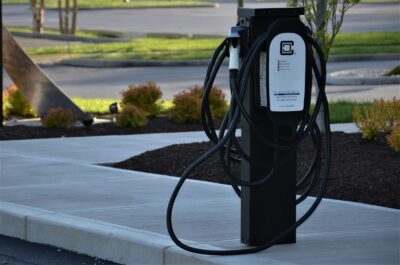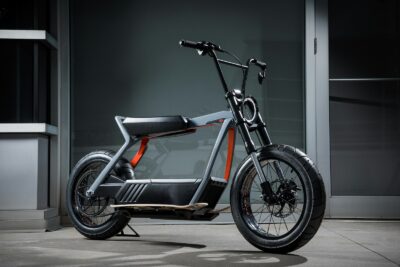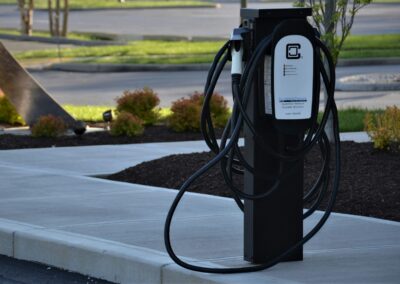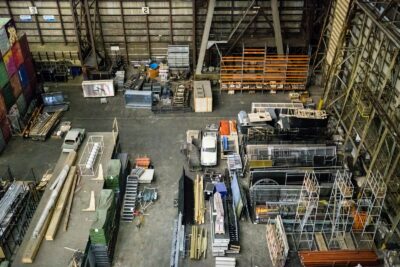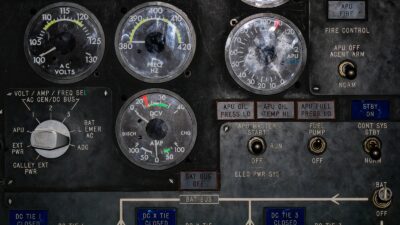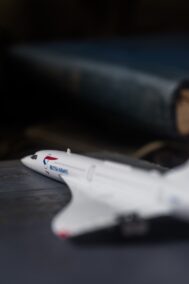Transforming Air Transportation with Electric Propulsion
Introduction to Electric Propulsion
Electric propulsion is revolutionizing the aviation industry, offering a sustainable solution to mitigate climate change by reducing greenhouse gas emissions from air transportation. As business executives and entrepreneurs recognize the urgency of environmental stewardship, the adoption of electric propulsion technologies represents a significant step towards achieving carbon neutrality in the aviation sector. In regions like Saudi Arabia and the UAE, where investments in modern technology are driving economic growth, embracing electric propulsion is not only environmentally responsible but also strategically advantageous for long-term business success.
The transition to electric propulsion marks a paradigm shift in aviation, moving away from traditional combustion engines towards cleaner and more efficient power sources. Electric aircraft utilize electric motors powered by batteries or fuel cells, eliminating the need for fossil fuels and significantly reducing carbon emissions. This aligns with global efforts to decarbonize the transportation sector and mitigate the impact of climate change. By investing in electric propulsion technologies, airlines and aircraft manufacturers demonstrate their commitment to sustainability while positioning themselves as leaders in environmental stewardship.
Furthermore, electric propulsion offers tangible benefits beyond environmental sustainability. Electric aircraft are quieter, produce fewer pollutants, and require less maintenance compared to their conventional counterparts, resulting in lower operating costs and improved operational efficiency. This makes electric propulsion not only a socially responsible choice but also a financially prudent one for airlines seeking to optimize their operations and enhance their competitiveness in the market.
The Role of Electric Propulsion in Climate Action
The aviation industry is a significant contributor to global greenhouse gas emissions, accounting for approximately 2-3% of the total carbon footprint. Electric propulsion presents a viable pathway towards reducing these emissions and achieving carbon neutrality in air transportation. By electrifying aircraft propulsion systems, airlines can drastically reduce their carbon footprint, thereby contributing to global efforts to mitigate climate change and transition to a low-carbon economy. This is particularly relevant in the context of the Paris Agreement goals and the increasing pressure on industries to align with sustainable development objectives.
Electric propulsion technology enables aircraft to operate with zero or minimal emissions during flight, significantly reducing the environmental impact of air travel. This is crucial for addressing the growing concerns about aviation’s contribution to climate change and air pollution. By investing in electric aircraft and infrastructure, countries like Saudi Arabia and the UAE can demonstrate their commitment to sustainability while supporting the growth of a green aviation sector. This not only enhances their global reputation as responsible environmental stewards but also stimulates innovation and economic development in the clean energy industry.
Moreover, the adoption of electric propulsion in aviation presents opportunities for collaboration and innovation across sectors. Governments, industry stakeholders, and research institutions can work together to overcome technological barriers, develop supportive policies, and accelerate the deployment of electric aircraft. This collaborative approach fosters knowledge sharing, talent development, and cross-sectoral partnerships, driving progress towards a more sustainable and resilient aviation ecosystem. By harnessing the power of electric propulsion, countries can position themselves at the forefront of sustainable aviation innovation and leadership.
Conclusion: Embracing Electric Propulsion for a Sustainable Future
In conclusion, electric propulsion represents a transformative solution for mitigating climate change and reducing greenhouse gas emissions from air transportation. Business executives, mid-level managers, and entrepreneurs play a pivotal role in driving the adoption of electric aircraft and supporting the transition to sustainable aviation. By investing in modern technology, fostering leadership and management skills, and embracing innovative approaches to project management, stakeholders can accelerate the shift towards a cleaner, greener aviation industry. Together, we can harness the potential of electric propulsion to create a more sustainable future for air travel and contribute to global efforts to combat climate change.
—
#ElectricPropulsion #AviationInnovation #ClimateAction #SustainableAviation #ModernTechnology #BusinessSuccess #LeadershipSkills #SaudiArabia #UAE





